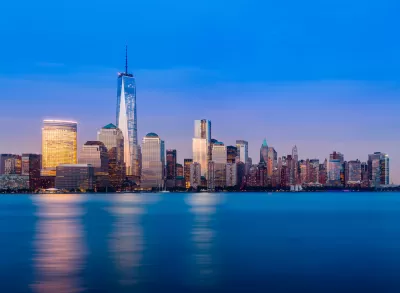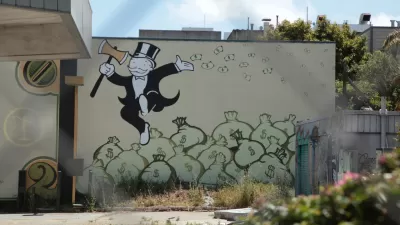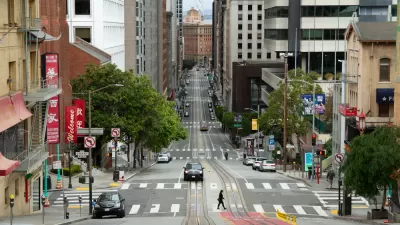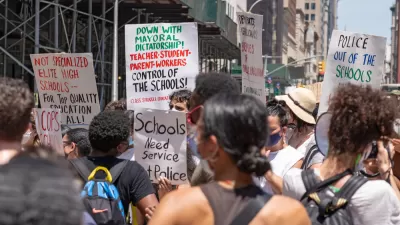As the debate about whether people prefer to live in the suburbs or the big city rages on, data from the U.S. Census reveals a clear preference on the part of economic trends in the wake of the Great Recession.

"Americans in small towns and rural communities are dramatically less likely to start new businesses than they have been in the past," reports Jim Tankersley, who also adds that such an unprecedented trend "jeopardizes the economic future of vast swaths of the country."
The data inspiring the article comes from a new analysis of Census Bureau data by the Economic Innovation Group. The data reveals a complicated narrative for the economic recovery following the Great Recession. Namely: "[what] growth has occurred has been largely confined to a handful of large and innovative areas," like the Silicon Valley, New York City, and parts of Texas.
As for the causes of the consolidation of economic growth, the report identifies a few concurrent trends that have all harmed small businesses in rural America. "Those include the rise of big-box retailers such as Walmart, the loss of millions of manufacturing and construction jobs across the country and a pullback in business lending that appears to have stung small-town and rural borrowers particularly hard," according to Tankersley.
The article includes more details of the data found in the report, as well as data from additional sources on the issue of economic growth. The Washington Post also produced an "explainer" video to help make sense of the jobs report, which can be found below.
FULL STORY: A very bad sign for all but America’s biggest cities

Alabama: Trump Terminates Settlements for Black Communities Harmed By Raw Sewage
Trump deemed the landmark civil rights agreement “illegal DEI and environmental justice policy.”

Planetizen Federal Action Tracker
A weekly monitor of how Trump’s orders and actions are impacting planners and planning in America.

The 120 Year Old Tiny Home Villages That Sheltered San Francisco’s Earthquake Refugees
More than a century ago, San Francisco mobilized to house thousands of residents displaced by the 1906 earthquake. Could their strategy offer a model for the present?

In Both Crashes and Crime, Public Transportation is Far Safer than Driving
Contrary to popular assumptions, public transportation has far lower crash and crime rates than automobile travel. For safer communities, improve and encourage transit travel.

Report: Zoning Reforms Should Complement Nashville’s Ambitious Transit Plan
Without reform, restrictive zoning codes will limit the impact of the city’s planned transit expansion and could exclude some of the residents who depend on transit the most.

Judge Orders Release of Frozen IRA, IIJA Funding
The decision is a victory for environmental groups who charged that freezing funds for critical infrastructure and disaster response programs caused “real and irreparable harm” to communities.
Urban Design for Planners 1: Software Tools
This six-course series explores essential urban design concepts using open source software and equips planners with the tools they need to participate fully in the urban design process.
Planning for Universal Design
Learn the tools for implementing Universal Design in planning regulations.
Clanton & Associates, Inc.
Jessamine County Fiscal Court
Institute for Housing and Urban Development Studies (IHS)
City of Grandview
Harvard GSD Executive Education
Toledo-Lucas County Plan Commissions
Salt Lake City
NYU Wagner Graduate School of Public Service





























